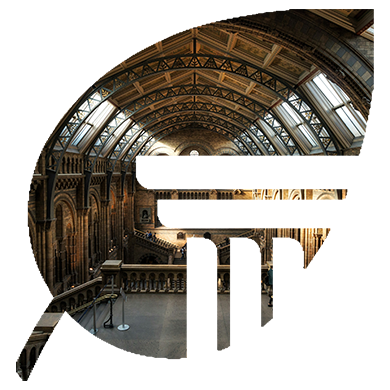Compliant Asbestos Surveys for Museums
As such an important part of UK culture and leisure, as well as the preservation of artefacts and precious historical items, it is vital that museum buildings are maintained to the best standard possible. Some older museums, especially those constructed in the 20th century, could still possess asbestos-containing materials (ACMs) which could be potentially hazardous if not in a compliant condition.
For a listed building, it is vital that the risk of asbestos exposure is managed by the building’s dutyholder – not only for the health and safety of visitors and staff members, but for the valuable and historical items present within the building also. The Control of Asbestos Regulations 2012 state that it is the dutyholder’s responsibility to manage the risk of asbestos exposure in their non-domestic premises (such as a museum), and therefore, not adhering to these regulations could result in costly fines or even imprisonment in more extreme cases.
We are expert asbestos consultants here at Pillars Environmental who know the complexities of working with public sector buildings, such as museums, as well as other commercial and domestic properties also. We carry out three types of asbestos surveys for museums across England, including: Asbestos Refurbishment and Demolition Surveys (R&D), Asbestos Management Surveys (AMS) and Asbestos Re-Inspections.
Other Properties We Survey:
| Factories | Warehouses | Schools | Hospitals | Cafes |
| Restaurants | Care Homes | Shops | Libraries | Farms |
OVER 30 YEARS
OF EXPERIENCE
HANDLING
ASBESTOS
Refurbishment and Demolition Surveys For Museums
Refurbishment and Demolition Surveys (formerly regarded as Type 3 asbestos surveys), are necessary when your museum is due to have significant works undertaken and therefore a more intensive sampling method is required. This could include both partial, or full refurbishment or demolition works in your museum.
As mentioned, Refurbishment and Demolition surveys take a much more invasive approach to asbestos sampling, and as a result, it is key that the locations with suspected ACMs present are fully vacated to ensure complete compliance with health and safety regulations. Our asbestos surveyors have plenty of experience surveying numerous historic buildings and commercial buildings, and only ever extract samples as according to the HSG264 Asbestos: The Survey Guide.
Then, we will package and post the possible ACMs to a UKAS (United Kingdom Accreditation Service) accredited lab for thorough asbestos testing. It will then be confirmed whether or not asbestos is present in the sampled materials, and we can then advise what the necessary steps are to ensure compliance in your museum building.
‘The duty to manage covers all non-domestic premises. Such premises include all industrial, commercial or public buildings such asfactories, warehouses, education,shops, cafes, hospitals and schools.’
Asbestos Management Surveys For Museums
On the other hand, Asbestos Management Surveys for museums utilise much less intrusive methods of sampling than an R&D survey. Formally known as a Type 2 asbestos survey in the industry, Asbestos Management Surveys may be a more apt survey type due to its more unobtrusive sampling methods and the fact it can still be completed with building users occupying your museum premises.
Here at Pillars Environmental, we only work with the most respected and reliable UKAS-accredited labs to both process and inspect the extracted samples from your museum. Our asbestos consultants can then appropriately advise you on how to best manage any ACMs in your museum either through an Asbestos Management Plan or other asbestos removal management services.
BESPOKE ASBESTOS SERVICES
OFFERING TAILORED, EXPERT ADVICE
Asbestos Re-Inspection Surveys For Museums
We also offer an asbestos re-inspection service for your museum building if the present ACMs are in an agreeable condition and are left in situ, but require frequent checks for compliance. As a result, we can check that the ACMs are aligned with important health and safety legislation surrounding asbestos, and for your own peace of mind as the designated dutyholder.
Asbestos re-inspections are often advised as a point of action within an Asbestos Management Plan. The management plan writes how to properly manage any ACMs present within your museum and may recommend that asbestos re-inspection surveys are undertaken to ensure the condition of ACMs have not deteriorated since last checked.
Asbestos Surveys For Museums FAQs
Where is asbestos commonly found in museums?
There are numerous types of applications where asbestos can be commonly found in museums, including but not limited to:
-
- asbestos lagging, used as thermal insulation on pipes and boilers
- sprayed asbestos used for thermal insulation, fire protection, partitioning and ducts
- asbestos-insulating board (AIB) used for fire protection, thermal insulation, partitioning and ducts
- some ceiling tiles
- floor tiles
- cement roofing and guttering
- textured coatings
How long will an asbestos survey take?
Asbestos surveys have a number of factors which could determine the time it takes for the survey to conclude, including: the type of survey you are having undertaken, the number of areas which require sampling, the age of the building, the condition of the ACMs and so on. For a better idea, get in touch with us today for a free quote.
What is the cost of an asbestos survey?
The cost of an asbestos survey can also vary significantly depending on the individual requirements of your specific museum location(s), including: the location of suspected ACMs, any specialist equipment needed and numerous other factors too.
We are rated 5 stars on Google!
Areas We Offer Asbestos Surveys
ASBESTOS
SURVEYS
We undertake Asbestos Management Surveys and Refurbishment and Demolition Surveys, both of which are HSG264-compliant…
ASBESTOS
MANAGEMENT PLAN
Our Asbestos Management Plans detail how you can manage asbestos in your property, in line with legislation…
ASBESTOS REMOVAL
PROJECT MANAGEMENT
We can oversee Asbestos Removal projects to ensure a thorough, safe and compliant job is being undertaken…




